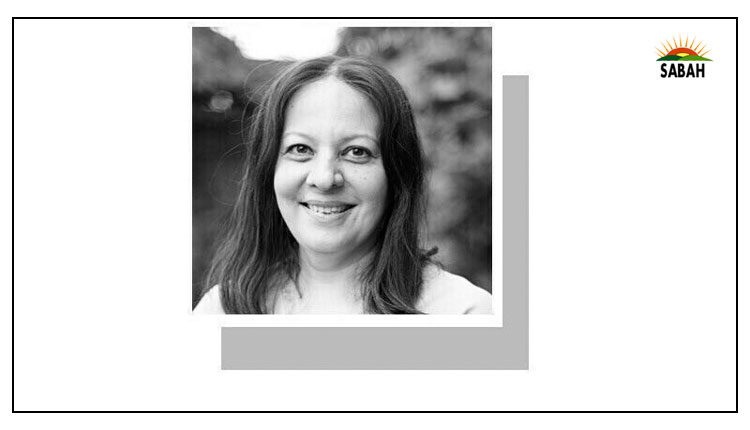The whole scoop…Muna Khan
ON a few peoples recommendations I watched the Netflix show Scoop about an Indian journalist Jagruti Pathaks quest for front page stories and how, in that chase, she gets embroiled in the murder of another journalist. The person reporting stories suddenly becomes the story. Its a fascinating show that sheds light on the connections between the media, law enforcement and criminal gangs. And its based on Jigna Voras memoir Behind Bars in Byculla, about her time in prison, charged for the murder of journalist Jyotirmoy Dey in 2011. She was acquitted in 2018.
Scoop is not just about Pathaks incarceration and her fight to clear her name. It tells the story of a female crime reporter navigating a very male-dominated space in which she must deal with their aspersions on her character and ethical practices. Pathak has worked hard to rise to reach her position and enjoys the full support of her editor. She deals with jealous colleagues and police officers playing politics in a bid to broker their own deals.
Is Pathak a hero for trying to get to the truth or a ruthless reporter seeking glory for that front page story? Must she be one or the other?
While the TV series shines a spotlight on the media industry, journalistic practices and relationships between the government (advertisers) and media companies, I thought it also aptly showed journalists personal lives. Too often one doesnt realise how their work impact families and relationships.
Scoop first came to my attention on social media because users were sharing a still from the show wherein the papers editor cites weather to illustrate objectivity. The quote actually came from Jonathan Fraser, a journalist and professor at Sheffield University: If someone says its raining, and another person says its dry, its not your job to quote them both. Your job is to look out the [expletive] window and find out which is true. Many people sharing this quote said this is how journalism must be or tell facts as they are. The trouble is, often people dont like facts.
Facts, for journalists, are like spices for chefs an essential part of their craft. Journalists use them to make arguments, substantiate claims and also hold the powerful to account. Sadly, selling wild claims as facts has turned into a profitable business for which there are many eager buyers the case of partisan YouTubers earning in the hundreds and thousands selling unsubstantiated claims is a prime example of how journalists role has been misunderstood.
Journalists are meant to play by the rules of the game but these rules assume politicians would stay within the guardrails of truth wrote the Australian editor Lenore Taylor in the Guardian in 2020. And weve seen, all over the world, how its difficult to play by those rules if the politicians themselves arent in any way constrained by facts if they lie, contradict themselves or simply make things up, or if their calculated tactic is to upend or subvert civic dialogue rather than participate in it.
Its so easy to say fake news to an opposing opinion or one not suited to your reality. I wont be surprised if fake reality becomes a term given that TV channels all over the world seem only too happy to air alternative facts. There are consequences of this and the pandemic is one example of how leadership that put aside its divisions and chose to create policies based on scientific evidence fared better than others. At one point when then president Donald Trump was calling Covid the China virus the mortality rate, measured as deaths per 100,000 citizens, was 54.18. Over in the UK when prime minister Boris Johnson was shaking hands with coronavirus patients to downplay the fear, that figure was 62.4. The rates came down when policymakers turned to evidence, not science fiction.
Facts save lives. They have an essential role to play in news consuming audiences everyday decision-making whether in choosing how to prepare for the cyclone or where to repose their trust at election time. If journalists demand evidence-based information, not hyperbole, from politicians, I believe the audiences trust in the media will see a rise. Placing a group of ill-qualified analysts or party spokespersons to pass as a diverse panel is not journalism. Reporting a political leaders conferences without contextualising is not journalism.
So if a minister says the country is not going to default and an oppositional leader says it is, your job is not to report what they said but to look out the window, smile in the knowledge that youve done your homework based on evidence and are ready to ask the tough questions. Perhaps it bears reminding that journalism is hard work and one that requires employing all tools of verification to get to the truth.
Courtesy Dawn












